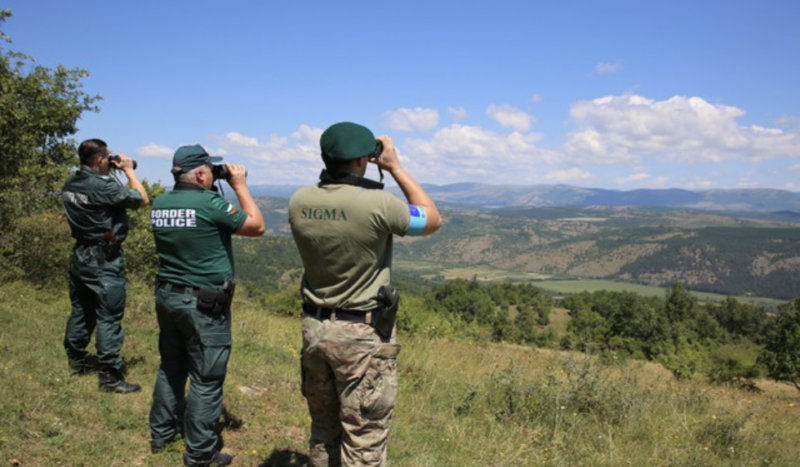Three Italian teachers from Turin, detained in Bulgaria during the Christmas holidays, faced accusations of aiding illegal immigration along the Balkan route.
They staunchly defended their actions, emphasizing that their mission was purely humanitarian: to provide much-needed supplies and expose the harsh realities faced by migrants at the Bulgarian border.
The trio—Lucia Randone, Simone Zito, and Virginia Speranza—are part of a collective known as “Balkan Routes.” Their efforts aim to counter migrant abuses, particularly those caused by what they describe as violent practices of Bulgarian border police. Randone, a history and philosophy teacher, explained to Corriere della Sera:
“In Bosnia and Serbia, we heard stories about Bulgarian police violence, so we decided to move there. Our goal is to bring concrete solidarity—food, warm clothing, medicines—and to draw attention to the violations occurring at this border.”
The group views the Bulgarian border as one of the most dangerous and abusive entry points into Europe. Besides delivering aid, they also act as witnesses to deter illegal pushbacks by staying physically present during migrant arrivals. However, this activity led to their detention on December 24.
“When we arrived in the woods [near the border], we immediately notified the border police,” the group explained. “If we didn’t do so, we would have been reported for aiding illegal immigration. Our goal was to be present when [migrants] arrived to prevent illegal pushback.”
Despite notifying authorities, Bulgarian police arrested them, detaining them overnight in a cell. They were released and allowed to return to Italy on January 5, but the experience did little to deter their activism. Randone declared their commitment to continuing the work:
“The police often adopt degrading behavior towards migrants. Our physical presence is crucial to limit dehumanization.”
The group cited a tragic incident on December 26 as evidence of their cause’s urgency. They claimed to have received a report of three Egyptian teenagers, aged 15 to 17, attempting to cross the border. Unable to reach them due to police intervention, the teens reportedly died.
Their efforts come at a critical time. Romania and Bulgaria officially joined the Schengen Area on January 1, creating a new corridor of passport-free travel stretching from Bulgaria to Finland in the north and Portugal in the west. While some border controls remain in place at key crossings, particularly between Hungary, Romania, and Bulgaria, this development heightens the urgency of addressing border issues.
The Italian teachers argue that their activism is vital to exposing the mistreatment of migrants and holding authorities accountable. Despite facing legal risks, their mission highlights the dire conditions on the Balkan route, often overshadowed by a focus on the Mediterranean.
The story underscores a broader struggle over migration policies in Europe, as nations like Bulgaria balance their obligations within the Schengen framework with growing criticism of their border enforcement methods. Meanwhile, the resolve of activists like Randone, Zito, and Speranza suggests the fight for migrant rights on Europe’s eastern frontier is far from over.




